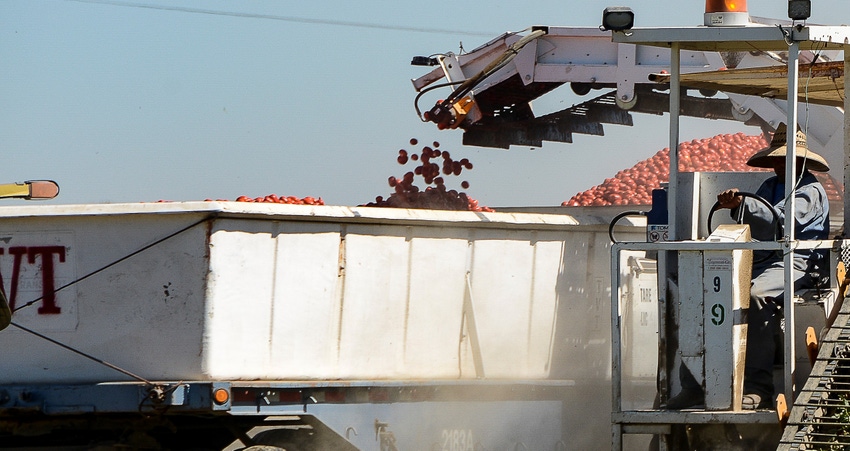
The recent announced price of $105 per ton is perhaps the earliest agreed-upon price for California canning tomatoes in the last two decades. It's also a record.
Mike Montna, president, and chief executive officer of the California Tomato Growers Association, said the negotiated price between farmers and the canneries reflects an understanding that tomato supplies and water are short, while demand remains strong.
Five years ago the industry had an excess of inventory, Montna said. Since then yields have been mixed, but generally lower than the 48-ton average growers saw for a few years after converting to drip irrigation in about 2007, he said.
Last year's yield average failed to hit 47 tons per acre on a price of $84.50 per ton. Montna blamed weather and disease pressure for the lower yields.
Of the higher price, Montna said there was an agreement that tomato growers would need a higher price because of increased input costs.
Water availability a factor
Water availability going forward will drive planting decisions, Montna says, and canning tomatoes are no different. How that plays against cotton, a common rotational crop for tomato growers in California remains to be seen as cotton prices to the grower are up as well.
"The industry felt that we're competing for water and open ground, and it was in everyone's best interest to get this price settled so growers and processors can make decisions now," Montna said. "We have the acres, it's the acre feet of water we're missing."
A Tulare County cotton grower who does not grow tomatoes said the canneries are seeking growers to meet demand.
"I'm told that the canning companies are in our area looking for people with water," said Steve Wilbur, a Tulare County cotton grower who does not grow tomatoes.
While the price for conventional tomatoes is set, Montna says the organic price is still being negotiated. About 5% of last year's tomato volume was certified organic, he said.
While supplies remain tight, the bump in sales and demand during and post-COVID, bode well for the industry. While consumers early in the pandemic were prone to hoard products and stock up on canned goods, that demand has not waned as consumers have found easy and inexpensive recipes to use tomato products, such as pasta sauce.
About the Author(s)
You May Also Like






